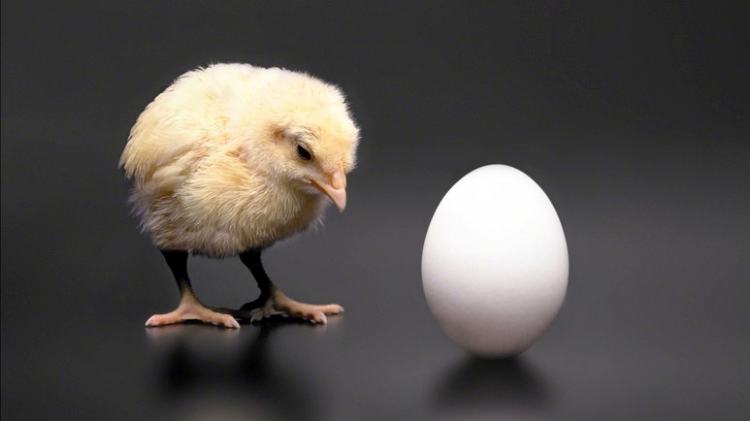What Came First: the Chicken or the Egg?

A chicken and an egg stare down their apparent origins.
Forget the chicken and the egg. Both are somethings. What we want to know is how somethings come from nothing at all!
To formularise something we should account for nothing. However, one may suppose, as Parmenides did, that even to describe nothing (e.g. in notions such as emptiness, vacuity, and possible worlds) is to declare something about existence (i.e. somethingness).
While Parmenides et al considered it self-defeating to talk of nothing, Greek ‘atomists’, such as Democritus, in contrast, welcomed talk of the void. In fact, they claimed there are ‘only atoms and the void’, whereby atoms are compositions of the void itself, ruled by ideal laws. In this ontology the void is (existent). But, then, aren’t we back at the start?
In epistemology, meanwhile, René Descartes inspired the idea that existence must be proven; and nothing, itself, cannot reach this bar, by definition. St. Augustine, however, was more conservative, arguing we should sit in the middle, between something—a point we have not reached—and nothing—a point at which nothing can be started, even conceptually.
In Being and Event Alain Badiou uses Plato’s dream metaphor to claim something is logically tied to nothing without claiming there is a void (the void is not). Dreams are constructed in sleep. Sleep stops; the dream stops. But no matter how closely we look at dreams’ narratives we see multiplicity: an enormous story which actually grows in size the more we inspect its origins, without limits.
How are dreams (something) ontologically grounded in sleep (nothing)? Using set theory, Badiou explains how events are sutured to themselves under one narrative. But as soon as we grasp the entirety of the dream in a thinkable, ontological structure, the connection to sleep is shattered by discursive, wakeful thought.
In this way nothing always mediates a situation, ensuring events are consistent with themselves and traces to it are erased in presentation. Nothing is not, as per this analysis: a non-being which sits below what is presented under an ‘ungraspable horizon’—a total, unprovable absence which is always necessary to avoid a ‘chicken or the egg’ situation about existence.
Is this mathematical magic?
What do you believe?
